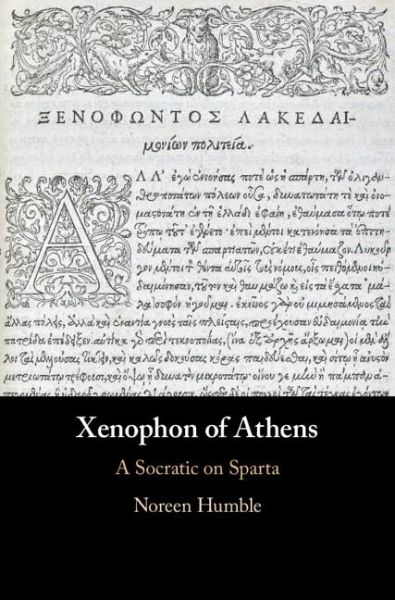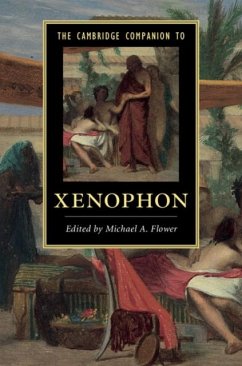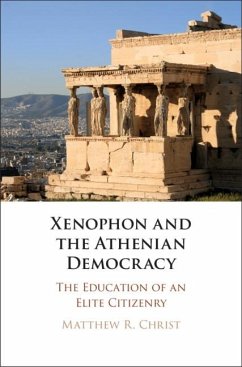
Xenophon of Athens (eBook, PDF)
A Socratic on Sparta
Versandkostenfrei!
Sofort per Download lieferbar
65,95 €
inkl. MwSt.
Weitere Ausgaben:

PAYBACK Punkte
33 °P sammeln!
Xenophon of Athens (c. 430-354 BCE) has long been considered an uncritical admirer of Sparta who hero-worships the Spartan King Agesilaus and eulogises Spartan practices in his Lacedaimonion Politeia. By examining his own self-descriptions - especially where he portrays himself as conversing with Socrates and falling short in his appreciation of Socrates' advice - this book finds in Xenophon's overall writing project a Socratic response to his exile and situates his writings about Sparta within this framework. It presents a detailed reading of the Lacedaimonion Politeia as a critical and philo...
Xenophon of Athens (c. 430-354 BCE) has long been considered an uncritical admirer of Sparta who hero-worships the Spartan King Agesilaus and eulogises Spartan practices in his Lacedaimonion Politeia. By examining his own self-descriptions - especially where he portrays himself as conversing with Socrates and falling short in his appreciation of Socrates' advice - this book finds in Xenophon's overall writing project a Socratic response to his exile and situates his writings about Sparta within this framework. It presents a detailed reading of the Lacedaimonion Politeia as a critical and philosophical examination of Spartan socio-cultural practices. Evidence from his own Hellenica, Anabasis and Agesilaus is shown to confirm Xenophon's analysis of the weaknesses in the Spartan system, and that he is not enamoured of Agesilaus. Finally, a comparison with contemporary Athenian responses to Sparta, shows remarkable points of convergence with his fellow Socratic Plato, as well as connections with Isocrates too.
Dieser Download kann aus rechtlichen Gründen nur mit Rechnungsadresse in A, B, BG, CY, CZ, D, DK, EW, E, FIN, F, GR, HR, H, IRL, I, LT, L, LR, M, NL, PL, P, R, S, SLO, SK ausgeliefert werden.













